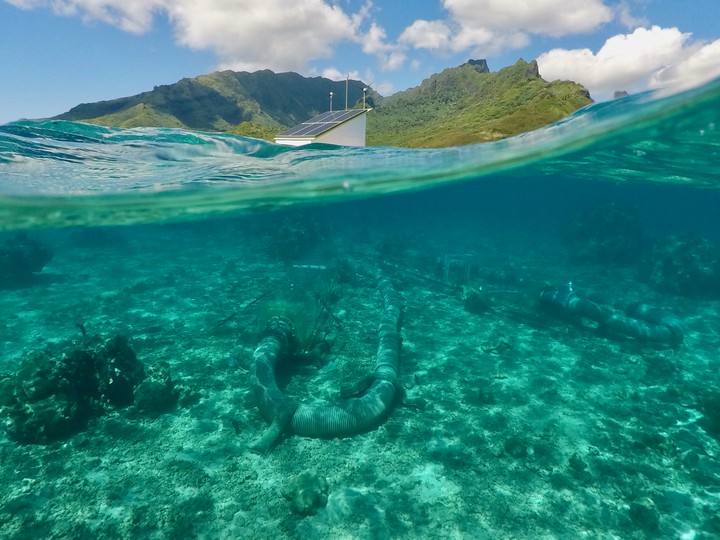SCoRe FOCE
 Photo by S. Doo
Photo by S. DooThe physical and chemical conditions of seawater are changing globally due to anthropogenic CO2. Among the various impacts of increased atmospheric CO2, its dissolution into seawater is predicted to have a profound reduction in seawater pH (0.2 - 0.5) by 2100. Ocean Acidification, has important negative effects on coral communities that build their skeletons via biogenic calcification. While these effects and organisms’ ability to buffer the effects are well established at the individual and population level, the community (i.e., intact coral community) level response remains elusive due to the logistical constraints associated with controlling seawater chemistry across large tracts of reef area for long periods of time.
In Mo'orea, French Polynesia we designed, built, and deployed a new system of controlling seawater chemistry over a relatively large area of reef (2.5m2 benthic area) for extended time duration (e.g., weeks to months) to assess the effects of Ocean Acidification on coral communities. In our recent paper in Limnology and Oceanography: Methods, we describe this system and a proof-of-trial in detail.
Check out more of the NSF funded CSU Northridge Ocean Acidification team's findings here!!